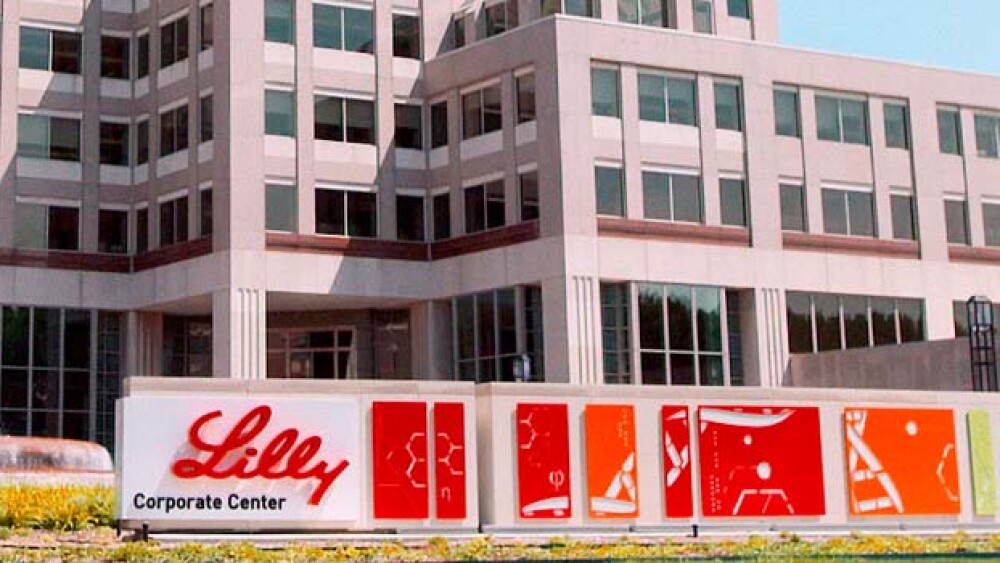The big hit has been for its insulin Lispro products. Since January 1, Lispro and Humalog have dropped 26% to $447.1 million in the first quarter.
Eli Lilly and Company wants to look forward, rather than backward, as it presented a 4% drop in revenue for the second quarter. The big hit has been for its insulin Lispro products. Since January 1, Lispro and Humalog have dropped 26% to $447.1 million in the first quarter. This appears to be an effect of a bill passed by the U.S. House of Representatives in March capping monthly out-of-pocket costs for insulin to $35 for people with health insurance.
The company’s cancer drug, Alimta, also dropped 63% to $227.7 million because of generic competition. As a result, the emphasis was on new products, including a recently approved diabetes drug, Mounjaro, which brought in $16 million for the quarter.
“We had an exciting quarter with the highly anticipated U.S. launch of Mounjaro, the first of potentially five new medicines we intend to launch by the end of 2023,” David A. Ricks, Lilly’s chair and CEO, said. “We are pleased with the underlying strength of our core business, and we expect our new medicines will add to our growth through the rest of the decade. We are entering a compelling era in our company’s history, as we continue our efforts to expand the number of people our medicines can help.”
The company reported that the U.S. Food and Drug Administration has accepted its submission for Alzheimer’s drug donanemab under the accelerated approval pathway under Priority Review. The agency also accepted pirtobrutinib for mantle cell lymphoma for patients previously treated with a BTK inhibitor under Priority Review and an accelerated approval pathway.
In COVID-19, the company made a deal with the U.S. government to make bebtelovimab commercially available by U.S. states/territories, hospitals and providers through a sole distributor. This monoclonal antibody has been shown to be effective against the Omicron variant. That’s good because the company’s antibody cocktail of bamlanivimab and etesevimab was banned by the FDA in January due to its ineffectiveness against the Omicron variant and subvariants.
It also marks a shift from how the drug and most other COVID-19 vaccines and treatments are distributed in the U.S. Before this, Lilly sold all its antibody treatments for COVID-19 through federal government contracts. The government then made the doses accessible for patients and oversaw distribution to states and pharmacies. But apparently, the government supply of bebtelovimab is almost exhausted, and without a new Congressional appropriation, the government doesn’t have the money allocated to buy more.
So Lilly is making it commercially available via a sole distributor beginning the week of August 15.
“I don’t anticipate that this will in any way stimulate usage of the product,” Dr. Daniel Skovronsky, M.D., Ph.D., Lilly’s chief scientific and medical officer, told the Wall Street Journal. “It’s more just about, how do we keep it available despite the U.S. government not being able to purchase it anymore. That’s why we’re switching to a different model here.”
The company expects it will be covered under Medicare and Medicaid. It is typically used to treat people who are immunocompromised, not fully vaccinated, or at high risk for severe disease. Its intended use is when the antiviral therapies, Pfizer’s Paxlovid and Gilead Sciences’ Veklury, aren’t available or clinically appropriate.
In the news related to Medicare and Medicaid, Eli Lilly, after almost a decade of legal wrangling, was ordered by an Illinois federal jury to pay $61 million after determining the company deliberately shorted the Medicaid program by “leaving retroactive drug price increases out of the metrics it was required to include for drug rebate calculations,” according to Law360. The rebates were from 2005 to 2016, and the allegations included making false statements to the U.S. Centers for Medicare and Medicaid Services (CMS) regarding the prices it charged distributors of its drugs.
Anat Ashkenazi, Lilly’s senior vice president and chief financial officer, also put a positive spin on the quarterly financials, saying, “Excluding revenue from the Alimta loss of exclusivity in major markets, the sale of rights to Cialis in China in the base period, and COVID-19 antibodies, Lilly experienced 6% revenue growth in our core business led by strong performance from key products such as Trulicity, Verzenio and Jardiance. While we expect that our financial results will continue to be negatively impacted by foreign exchange rates, our revenue guidance for 2022 remains unchanged. Importantly, the inclusion of acquired in-process research and development and development milestone charges in our non-GAAP results will continue to impact comparisons to prior years.”





